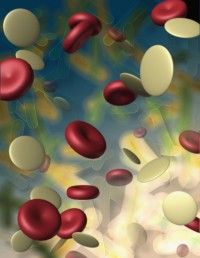
In what is being heralded as a “cancer breakthrough,” a new study revealed that maintaining a healthy intestine could be the key to surviving chemotherapy. As explained on NaturalNews.com, University of Michigan researchers have discovered that naturally produced cells found in the intestine are integral to the body’s ability to survive chemotherapy’s onslaught of poisonous chemicals.
The problem with chemotherapy and radiation in cancer treatment is that the patient is likely to die before he is cured. In a study with mice, Michigan researchers found that a naturally-occurring intestinal substance — called Rspo1 or R-spondon1 — triggers the production of stem cells.
The body’s building blocks, stem cells carry the genetic code vital to tissue creation and regeneration. When activated during chemotherapy, R-spondon1 triggered the repair of damaged intestinal tissues faster than tissues were being destroyed by chemotherapy, thus increasing chemo survival rates in experiments with mice. In the Michigan study, 50% to 75% of the mice that received R-spondon1 survived a fatal dose of chemotherapy.
Michigan researchers believe that since human and mouse intestines behave in much the same way, humans should respond in a similar manner. The key to making the system work is good intestinal health which is promoted by healthy gut bacteria. Probiotics, which promote the growth of healthy natural intestinal bacteria, create an intestinal environment that supports cell regeneration, enhancing your body’s ability to survive chemotherapy.
Probiotics could spark a new wave of body-boosting alternative cancer treatments. Just as Issels’ cancer vaccine program enhances the body’s immune system, increasing its ability to fight cancer; probiotics enhance the natural immune response of the intestinal tract, boosting the body’s ability to survive chemotherapy.





